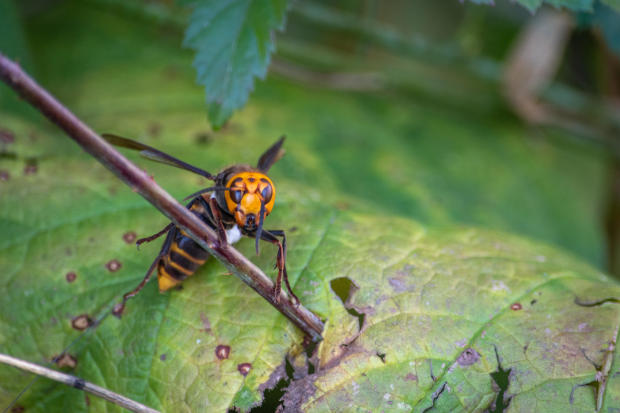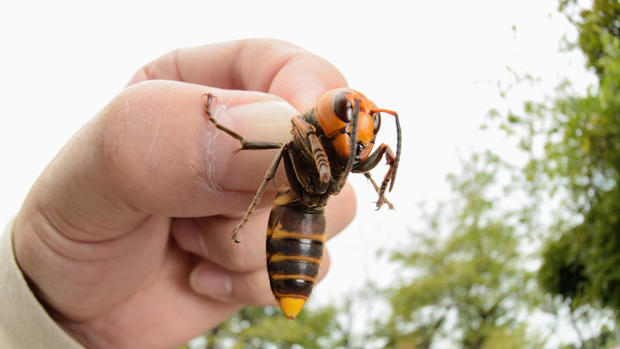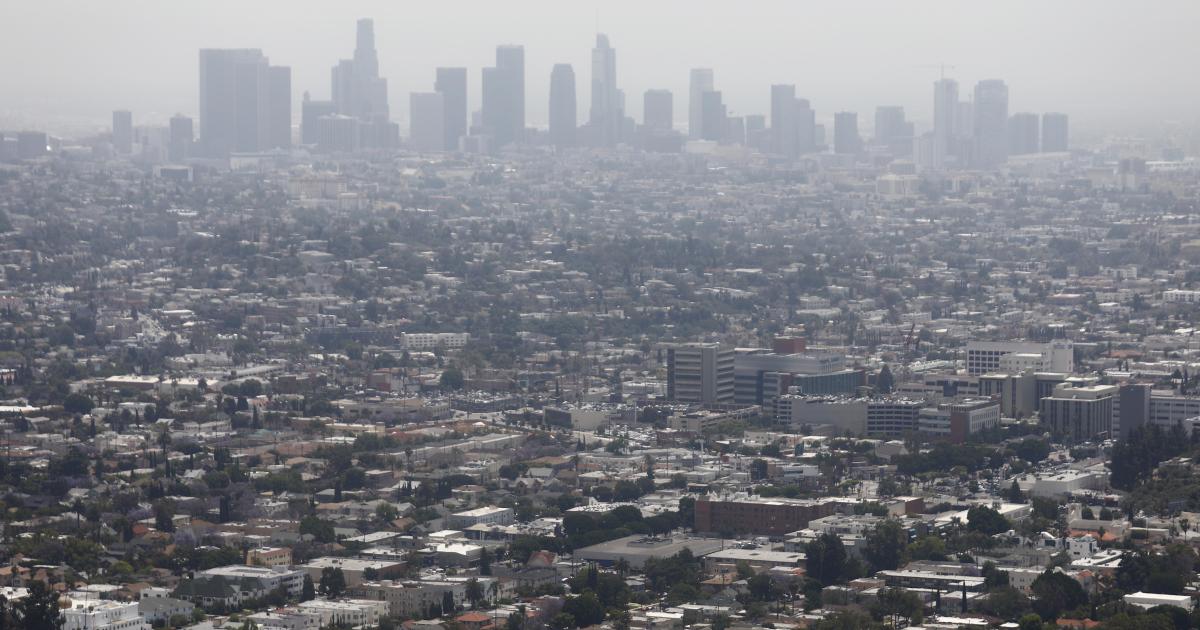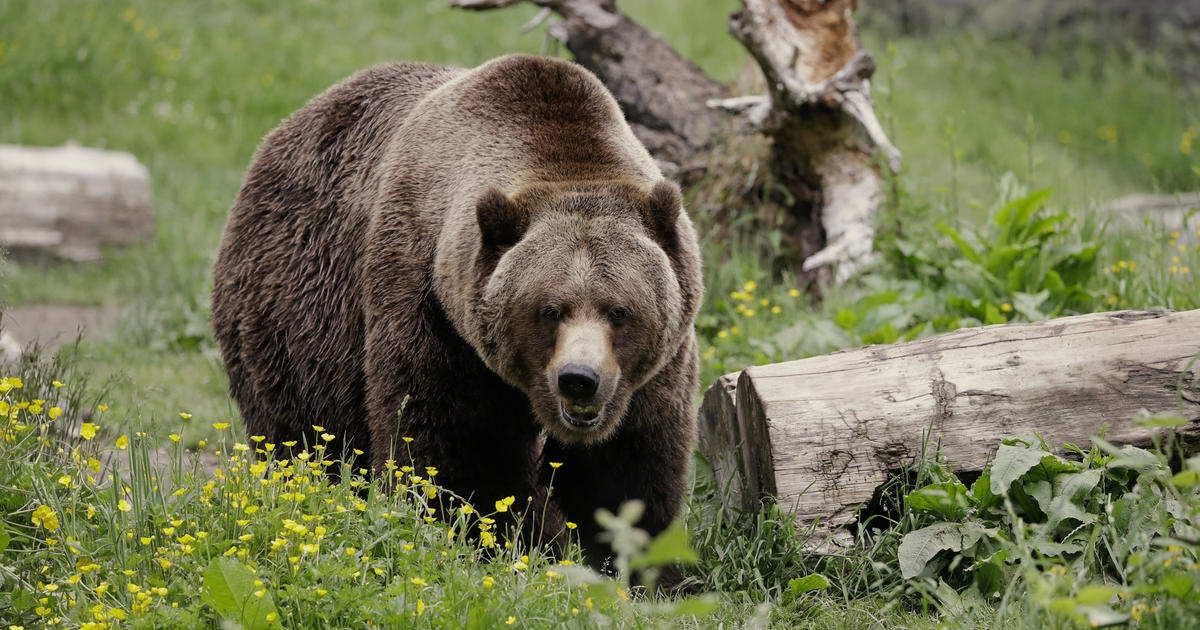Washington officials find first-ever "murder hornet" nest in the U.S.
Since the first Asian giant hornet was caught in the U.S. earlier this year, scientists have been meticulously tracking each and every sighting in the hopes of squashing out the invasive species before it establishes itself in the country. But entomologists found a distressing sign this week that the giant insects known as "murder hornets" are taking hold: a nest.
Washington State Department of Agriculture (WSDA) entomologists found an Asian giant hornet nest on a property in Blaine, Washington, on Thursday — the first one ever found in the U.S. Officials said in a statement that they plan to eradicate it on Saturday, October 24.
On Wednesday, a WSDA trapper collected two live Asian giant hornets that were caught in a new type of trap set by the agency in an area that has been reporting murder hornet sightings for months. The following day, officials found two more live hornets in another trap in the same area.
Entomologists attached radio trackers to three hornets, one of which lead them to the discovery of the nest — which has an estimated 100-200 hornets — on Thursday afternoon. They originally planned to eliminate the nest Friday, but pushed plans to Saturday due to inclement weather.
The nest was located inside the cavity of a tree on private property near an area that was cleared for a residential home. The owner of the property gave WSDA permission to eradicate the nest and even remove the tree completely if officials believe it's necessary.
When the team arrived at the site of the nest, dozens of the hornets were seen entering and exiting the tree. It is more common for Asian giant hornets to nest in the ground, but nests are occasionally found in dead trees.
During a news conference, WSDA entomologist Sven-Erik Spichiger said the team will use vacuum extraction to capture the hornets live, because several specimens are needed for research.
"We do have traps now that we know catch hornets, and we are continuing to improve those, Spichiger said. "Even if we don't get all of the nests this year, we have demonstrated that it is possible to do so."
The first Asian giant hornet in Washington state was spotted in December 2019, but it wasn't until July of this year that officials were able to trap one. Several more have since been trapped, all in Whatcom County, using a network of traps set up by both WSDA staff and hundreds of citizen scientists.
"If it becomes established, this hornet will have negative impacts on the environment, economy, and public health of Washington State," WSDA warned. Spichiger said "there is a good chance that there's definitely more than just this one" nest.
The Asian giant hornet, Vespa mandarinia, is the world's largest hornet species. They have large yellow-orange heads, prominent eyes and are between 1.5 to 2 inches long.
The hornets, which are often confused with the European hornet, are also known for their painful stings. They will attack people and animals if they feel threatened and officials warn people to be extremely cautious if they spot one.
They also pose a serious threat to honeybee populations, especially in late summer and early fall. Murder hornets can decapitate thousands of bees and destroy hives in a matter of hours — known as their "slaughter phase" — which would also have a catastrophic effect on the crops that the bees pollinate.
There have been no reported hive attacks this year, leading officials to believe they are not currently in the "slaughter" phase or have not been able to find a hive.
Spichiger said the hornets will be considered "established" in the U.S. if officials find nests for several consecutive years. For now, the hornets are still a relatively small population, and they are being actively hunted.
"We should be cautiously optimistic that there is just one nest at this point," he said.






